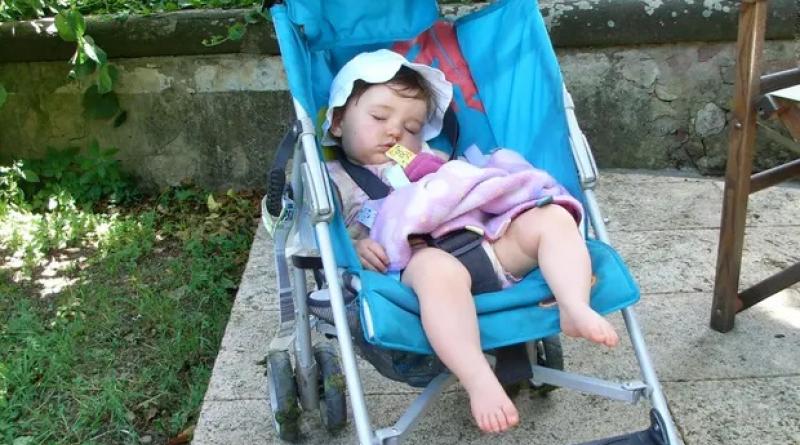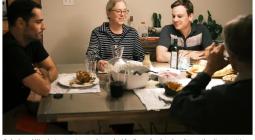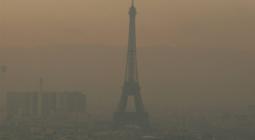vBritish parents need to adapt to climate chaos – but not by abandoning the great outdoors

Like all children, I hated rainy days. What I didn’t realise until I had my own baby was how my parents probably hated them, too. Cooped up, whingeing babies can make cooped up, whingeing babies of their adult caregivers, too. “Get outside every day,” people tell you, but you find yourself and the child all wrapped up and ready to go and standing in a doorway watching the showers come down in biblical sheets. A 2016 study that found that British children spend less time outdoors than prison inmates started to make a little bit more sense.
I have sung a lot of Singin’ in the Rain this past winter, and then spring, but sometimes I’ve been crying on the inside. I don’t get seasonal affective disorder, but by April my spirits were starting to feel low. The weather feels personal now, in a way that it never did before, when I could hunker down with a book or a film or a glass of red wine and a record. Now stormy weather means trying to find endless entertainment for a baby who loves nothing more than being outside and watching the wind shake the leaves. It couldn’t have been more different than the spring we brought him into the world: our postpartum euphoria as we walked him through sunlit streets, long lunches of seafood pasta while he slept in the pram, pink blossom falling like snowflakes on the day we registered his birth. This year, it’s been so wet that he’s only just touched grass.
It got me thinking about how weather and climate radically alter our experience of parenting and the culture of parenthood, depending on where on the planet we find ourselves. Before we had the baby, we used to go to Greece, and in my 20s I spent a year living in Italy. In both cases, I was always struck by the Mediterranean attitude to parenting, the children out playing far past British bedtime, as their parents dined and socialised nearby. I always felt that I wanted to be like that – not least because a later bedtime surely means a more civilised wake-up time – but, as well as the weather, it’s a challenge in a country that does not treat public space in the same way. The piazza shapes parenting, as it shapes many aspects of Italian life.
The Arctic survival parenting of Sami reindeer herders is another example of how climate shapes family life. Children are taught independence from a young age as a way of building resilience in a hostile climate – children choose when they eat and when they sleep, curling up for a nap wherever they feel like it. “Me and the children can nap on an all-terrain vehicle, snowmobile, under a rain cover in a trailer or in our van”, a woman who married into a Sami family told the BBC. Families don’t follow a schedule; the terms are set by the natural environment.Now that things have brightened up, I have vowed to work towards helping my boy to learn to nap outside on a rug. Yesterday, in the playground, I met a Portuguese nanny who had put her charge face down on a blanket on the large circular nest swing and covered her with a coat. When I asked the woman how she had managed to get her to sleep so soundly, her response indicated that a child refusing to nap was not really an option. They sleep better outside, she said.
Scandinavians are inclined to agree. They’re famous for leaving sleeping babies in prams in the street, and will bundle them up and allow them to nap outside even in sub-zero temperatures. Nursery schools will put the children down in the garden, the theory being that the children are less likely to catch viruses than if you have them all sharing the same room. One piece of Finnish research found that babies slept longer outdoors than indoors.
Perhaps my countryside roots are manifesting in my resistance to being an urban, “indoor” parent, or perhaps being outside just feels more natural to me. In an evolutionary sense, we are supposed to be outdoors, and, just as how babies relax during movement speaks to our nomadic past, there must be an atavistic desire to spend time in the open air.
In the climate emergency, however, outdoor parenting is going to become more challenging than ever as weather becomes more extreme. The heatwave last summer, when I took the baby out only in the early mornings and late evenings, though it hit 28C by 7am, gave me a glimpse of things to come. Will the next few decades see London become unlivable for the very young and the very old? Our architecture is not built for heat as it is in warmer countries, and I’ll never forget the hellish week we spent breastfeeding under a fan, stuck together by a film of sweat. Periodically I would sponge down both the baby and Mackerel, our poor, panting cat, with flannels cooled in the fridge. We even considered putting him on Mackerel’s special pet cooling mat.
Society will need to adapt, or British children will end up more cooped up than ever. I am immensely privileged to live in a place where the local government has prioritised shaded playgrounds, paddling pools and sprinkler areas, so that all children, regardless of whether they have access to a garden, can enjoy the summer. I can’t wait to introduce him to the joy of water play, but perhaps it’s time to think about a life that looks beyond the paddling pool to a closer engagement with nature. In the meantime, let’s just hope the weather holds up.
What’s working
Cheese as a vehicle for getting green veg into the baby. Like his mother, who is frequently mocked by his father for always adding it to dishes “for flavour”, the baby is a fromage fiend, and will eat almost anything as long as it factors. A friend uses a similar strategy, but with desiccated coconut. Yes, on everything, including bolognese.
What’s not
This kid loves wiping his mouth on everything that isn’t a cloth. Feeding him has turned into a race against time: can you wipe his grubby chops before he launches himself at your lovely blouse or the nearest piece of furniture? The answer is almost always no, which is why the ottoman is covered in little rings of yoghurt.
cover photo:‘One piece of Finnish research found that babies slept longer outdoors than indoors.’ Photograph: Richard Saker/The Guardian





